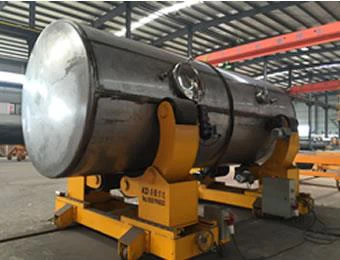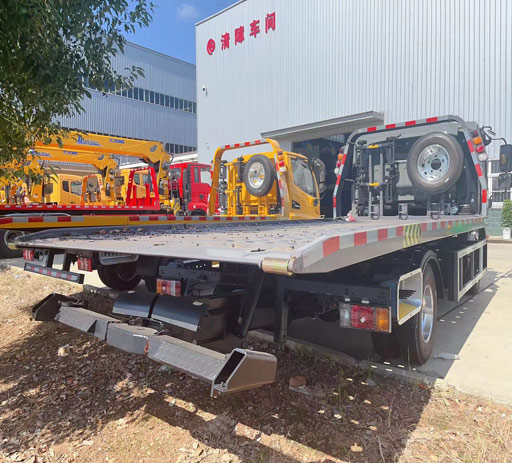Garbage Truck Waste Management: A Comprehensive Guide

Effective waste management is a crucial aspect of urban life, impacting public health, environmental sustainability, and city aesthetics. Central to this process is the garbage truck—an essential vehicle in the waste collection system. This article will delve into the components of garbage truck waste management, its importance, best practices, and practical examples, providing a comprehensive understanding of how these vehicles contribute to maintaining clean and healthy communities.
Understanding Garbage Trucks
The Role of Garbage Trucks in Waste Management
Garbage trucks play a vital role in waste management by transporting waste from residential, commercial, and industrial areas to disposal sites or processing facilities. They are equipped with features that enable efficient collection, handling, and transportation of various types of waste.
Types of Garbage Trucks
There are several types of garbage trucks, each designed for specific waste management tasks:
- Rear Loader Trucks: Commonly used in residential areas, they have a compaction mechanism at the back for efficient waste handling.
- Side Loader Trucks: These are designed for automated waste collection, enhancing safety and efficiency by allowing operators to collect waste from the side.
- Front Loader Trucks: Typically used for commercial waste, they can handle large containers and have powerful lifting systems.
- Roll-off Trucks: Ideal for construction and demolition debris, these trucks transport large containers that can be filled on-site.
The Garbage Collection Process
Steps Involved in Waste Collection
The process of garbage collection typically involves several key steps:

- Route Planning: Efficient routing minimizes fuel consumption and maximizes collection effectiveness.
- Waste Collection: Drivers follow predetermined routes, stopping at designated points to collect waste.
- Compaction: Many garbage trucks compact waste on-site, increasing the amount collected in each trip.
- Transportation: The truck transports waste to landfills, recycling centers, or waste-to-energy facilities.
Optimization of the Garbage Collection System
Optimizing routes and collection schedules is essential for efficiency. Technologies like GPS, route optimization software, and telematics can help waste management companies improve service delivery.
Waste Types Handled by Garbage Trucks
Residential Waste
This includes typical household waste such as food scraps, paper products, and plastics. Effective sorting and recycling programs can significantly reduce the amount of waste sent to landfills.
Commercial Waste
Commercial establishments generate different types of waste, often requiring larger containers and specialized collection techniques. This category includes food waste, packaging materials, and industrial by-products.
Construction and Demolition Waste
Construction sites produce robust waste materials like concrete, wood, and metal. These materials often require roll-off trucks for efficient transport to designated disposal sites.
Importance of Effective Garbage Truck Waste Management
Health and Safety
Efficient garbage collection prevents the accumulation of waste, which can lead to health hazards, including diseases spread by pests and bacteria. Keeping communities clean contributes to public health.
Environmental Impact
Garbage trucks that operate efficiently help minimize carbon emissions. Furthermore, they ensure proper disposal and recycling of materials, reducing landfill waste and promoting environmental sustainability.
Economic Benefits
Effective waste management through garbage trucks reduces costs associated with landfill disposal and environmental cleanup while promoting a cleaner community that can attract businesses and tourism.
Best Practices in Garbage Truck Waste Management
Regular Maintenance of Garbage Trucks
Regular maintenance ensures that garbage trucks remain operational and efficient. Maintenance includes checking the engine, brakes, hydraulic systems, and compaction mechanisms.
Training for Garbage Truck Operators
Providing thorough training for drivers ensures safe operation, proper waste handling, and an understanding of environmental regulations. Training should also focus on customer service, as drivers often interact with the public.
Community Awareness Programs
Involving the community in waste management efforts helps improve recycling rates and promotes responsible waste disposal. Awareness campaigns can educate residents on what materials can be recycled and proper disposal methods.
Innovations in Garbage Truck Waste Management
Smart Garbage Trucks

Recent advancements include smart garbage trucks equipped with sensors that allow for real-time monitoring of waste levels in bins, optimizing collection schedules, and reducing unnecessary trips.
Compressed Natural Gas (CNG) Trucks
CNG trucks are an environmentally friendly alternative to diesel-fueled garbage trucks. They emit fewer pollutants and contribute to cleaner air quality in urban areas.
Challenges in Garbage Truck Waste Management
Budget Constraints
Many municipalities face budget challenges that limit the resources available for waste management. Balancing service quality with budget constraints is a prevalent issue.
Public Perception and Engagement
Public skepticism regarding the effectiveness of waste management programs can hinder participation in recycling and waste reduction initiatives. Building trust and engagement within communities is vital for program success.
Practical Examples of Garbage Truck Waste Management
Case Study: City of San Francisco
San Francisco has implemented an extensive recycling program supported by its waste collection services. The city utilizes a combination of regular garbage trucks and specialized vehicles to enhance its zero waste goal.
Tips for Homeowners
- Separate your recyclables from your garbage to reduce landfill waste.
- Compost organic waste to minimize the amount of trash for collection.
- Stay informed about local waste management schedules and guidelines.
Future Trends in Garbage Truck Waste Management
Automation and Robotization
The future of waste management may include automated garbage trucks that can efficiently navigate routes and perform pickups without human intervention, reducing labor costs and increasing efficiency.
Increased Recycling Efforts
As environmental awareness grows, the emphasis on recycling will likely increase, leading to more specialized garbage trucks designed to handle recyclable materials effectively.

FAQs
What types of waste can garbage trucks collect?
Garbage trucks can collect residential waste, commercial waste, construction debris, hazardous materials (with specialized trucks), and recyclables (in designated vehicles).
How often are garbage trucks scheduled to pick up waste?
Collection schedules vary by location but are typically weekly for residential areas. Commercial properties may have more frequent pickups based on waste volume.
What should I do if my garbage hasn’t been collected?
If your garbage hasn’t been collected as scheduled, contact your local waste management authority to report the issue and get guidance on how to proceed.
Are there any materials that should not be placed in garbage trucks?
Yes, hazardous materials such as chemicals, batteries, and certain electronics should not be placed in regular garbage. These require special disposal methods.
How are recyclables processed after being collected by garbage trucks?
Once collected, recyclables are taken to material recovery facilities where they are sorted, cleaned, and processed for reuse in manufacturing new products.
What is the average lifespan of a garbage truck?
The lifespan of a garbage truck can vary, but most trucks are designed to last between 10 to 15 years with proper maintenance and care.
